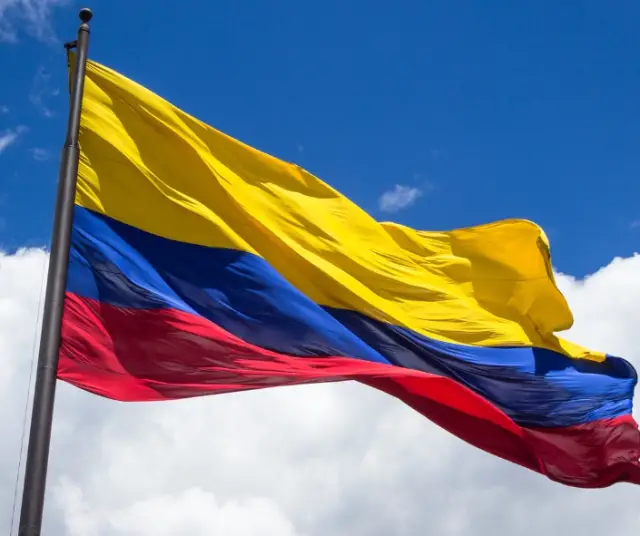Independence Day in Colombia, celebrated on July 20 each year, is a date of great national importance that commemorates the country's declaration of independence from the Spanish crown in 1810. This celebration is an occasion to reflect on history and Colombian identity, as well as to proudly celebrate freedom and national sovereignty. Over the years, Independence Day festivities have evolved, incorporating a variety of cultural traditions, patriotic ceremonies, and festive events that unite Colombians in a spirit of unity and celebration.
Historical Origins
Independence Day in Colombia has its roots in a crucial moment in the history of the country and all of Latin America. July 20, 1810 marked the beginning of a revolutionary movement that would change the course of Colombian destiny and open the doors to emancipation from Spanish colonial rule.
At that time, Colombia, known as the Viceroyalty of New Granada, was under the control of the Spanish crown, which had exercised its authority over the region since the 16th century. However, in the late 18th and early 19th centuries, ideas of freedom and independence began to gain strength in the American colonies, fueled by discontent with Spanish rule and the desire for self-government.
The trigger for the independence movement in Colombia was the occupation of the Spanish throne by Joseph Bonaparte during the Napoleonic invasion of Spain in 1808. This political crisis in the Spanish metropolis caused a power vacuum in the American colonies, which led to the creation of local government boards in several Latin American cities, including Bogotá, the capital of the Viceroyalty of New Granada.
On July 20, 1810, a group of criollos and mestizos in Bogotá, inspired by the ideals of freedom and autonomy, rebelled against the Spanish colonial government and established the Supreme Government Junta, a provisional government that sought to represent the interests of the Colombians and govern in the name of King Ferdinand VII, who had been deposed by Napoleon.
This act of rebellion marked the beginning of Colombia's independence process and triggered a series of events that would eventually lead to the country's definitive emancipation. Although independence was not achieved immediately in 1810, the independence movement continued to gain strength in the following years, with leaders such as Simón Bolívar and Francisco de Paula Santander leading the fight against Spanish rule.
Celebrations and Traditions
Independence Day in Colombia is an occasion of great celebration throughout the country. The festivities begin with patriotic ceremonies in major cities, where civic events, speeches and military parades are held to pay tribute to the heroes of independence and remember the sacrifice of those who fought for the country's freedom.
One of the highlights of the celebrations is the military parade in the capital, Bogotá, which features units of the Colombian armed forces, as well as schools, educational institutions and civic organizations. The parade is a display of national pride and a reminder of Colombia's commitment to defending its sovereignty and preserving peace.
In addition to military parades, Independence Day is also celebrated with cultural events, concerts, food fairs, and art exhibitions throughout the country. These activities offer Colombians the opportunity to come together, share in community and celebrate their diverse cultural heritage.
Gastronomy and Popular Festivals
Food plays an important role in Independence Day celebrations in Colombia. The streets are filled with food stalls offering a wide variety of traditional Colombian dishes, such as tumba paisa, ajiaco, sancocho and arepas. Music and dance are also essential elements of the festivities, with folk groups and traditional music bands enlivening the streets with their performances.
In many cities and towns in Colombia, Independence Day festivities culminate with spectacular fireworks that illuminate the night sky and fill the air with color and joy. These fireworks displays are a popular way to celebrate the country's freedom and independence, attracting crowds of people of all ages.
Reflection and Recognition
Although Independence Day is an occasion for celebration, it is also a time to reflect on the meaning of freedom and independence in modern Colombian society. It is an opportunity to recognize the challenges facing the country and renew commitment to democratic values, human rights and sustainable development.
Amid the festivities and joy, it is also important to remember those who have sacrificed their lives in the fight for independence and justice in Colombia. The heroes and martyrs of independence are remembered and honored on this day, and their legacy continues to be a source of inspiration for future generations.
Union and Hope for the Future
Independence Day in Colombia is more than a historical celebration; It is a manifestation of the unity and hope of a country that looks to the future with optimism and determination. As Colombia continues its path towards peace and reconciliation, Independence Day represents a reminder of the achievements of the past and a call to action to build a more just and prosperous future for all Colombians.
Through its traditions, celebrations and reflections, this day continues to be a source of inspiration and renewal for the Colombian people, reminding us of the importance of freedom, independence and unity in building a better country for present and future generations. .
